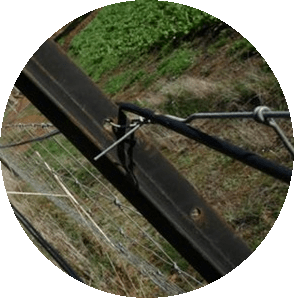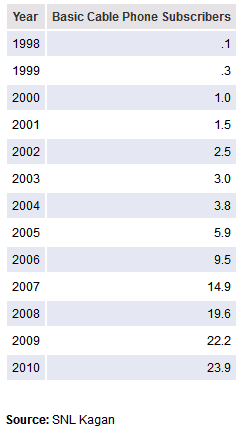 Phoenix-area officials are discovering CenturyLink, the area’s largest phone company, has gotten a little too creative with landline repairs, installing replacement lines across public streets, on fences, and in one case even wedged between a pavement crack.
Phoenix-area officials are discovering CenturyLink, the area’s largest phone company, has gotten a little too creative with landline repairs, installing replacement lines across public streets, on fences, and in one case even wedged between a pavement crack.
CenturyLink calls them “temporary telephone lines,” run as quick fixes to get service up and running again. Local officials call them a nuisance, and question what CenturyLink’s definition of “temporary” means.
The Arizona Republic found CenturyLink phone lines strung across the asphalt on Knox Road in Gilbert, where they remained in place for about a year, with vehicle traffic driving right over the cables. When the newspaper sent photos to the phone company asking why, they were gone within 24 hours.
CenturyLink’s Alex Juarez explains:
“CenturyLink is not required to bury or hang wires in any specific amount of time, but we make every effort to remove temporary lines as quickly as possible. … Repairing a damaged or malfunctioning underground or suspended cable takes time. CenturyLink uses temporary wires to restore service while we work to repair the permanent cable. Restoration of service is a priority. We place lines where they will be safely out of the way.”
Gilbert local officials dispute that, having previously notified CenturyLink the phone company was in violation of town regulations. Gilbert prohibits any utility wiring on its streets, and had received public complaints about temporary phone lines a year ago. Town spokeswoman Beth Lucas told the newspaper she was surprised the company was back at it again.
“We do not allow those kind of lines, and they can interfere with a variety of work,” including street sweepers, she said. “For a utility to be in a right of way, whether on a permanent or temporary basis, the company would need a permit, which means approval during the planning review process with staff.”
The problem with temporary wiring is that CenturyLink is not obligated to report where the lines have been installed, which can create a public nuisance, possible danger to public safety, and frustration for construction crews that often cut the cables without realizing they were there.
Chandler’s streets Superintendent Rex Hartmann noted city paving contractors cut off phone service for an undetermined number of customers when they discovered CenturyLink had force-wedged a communications cable into a pavement crack, covered up with sealant. When the roads were repaved, the cable was severed.


 Subscribe
Subscribe




